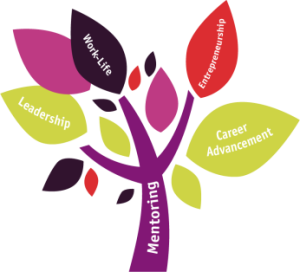Lesson 1. Basic Characteristics of a Good Mentor

A good mentor should have the below characteristics to create a fruitful mentoring relationship:
- ACTIVE LISTENING
Active listening is a technique where you completely concentrate on what is being said and observe non-verbal cues like body language. You listen with all your senses without being judgemental. You show interest in the conversation by maintaining eye contact, nodding, saying words like ‘yes’, ‘okay’, or ‘I know’, and more.
The Importance of Active Listening in Mentoring:
- defuse conflicts
- build trust
- identify issues and find better solutions
- GIVING CONSTRUCTIVE FEEDBACK
Giving constructive feedbacks is another key element of a good mentoring process. This may become a powerful tool for the mentor to guide the practical part of the process. Transmission of knowledge should be in a soft manner to create a collaborative atmosphere with the mentee.
To give constructive and effective feedback:
| MENTOR |
| should maintain eye contact and a measured tone of voice |
| should be specific in providing feedback |
| should establish an atmosphere of mutual trust and respect |
| should keep the feedback simple |
| should decide on a small number of areas that they want to cover |
| Should not provide any negative feedback in an open area with others around |
- BEING NON-JUDGEMENTAL
Being non-judgemental is another key element to maintaining an open and welcoming mentoring session. It is very important for a mentor to maintain a positive attitude and open mind to be truly supportive.
| Mentors should keep in mind the below themes to stay in a non-judgemental manner during a mentoring session | |
| Be curious about the whole process | Try to use the word ‘interesting’ instead of ‘good’ or ‘bad’ |
| Keep listening with an open mind
Allow the mentee to express their feelings and ideas clearly |
Adopt an attitude of empathy
Maintain positive body language and recognize cultural differences
|
- VALUING DIVERSITY OF PERSPECTIVES
Valuing diversity of perspectives requires self-awareness, intellectual flexibility, and broad knowledge that enable perception of the world through the eyes of others.
Discussing different opinions and being open to new options during the mentoring process most of the time leads to a stronger relationship between the mentor and the mentee. When we include voices that are different than ours, we can solve challenges and have more shared success. We can say that diversity inside the mentoring sessions gives them the real strength.
| Hints for being open to different perspectives in a mentoring session |
| Realize that each person has a unique culture |
| Be aware of your personal biases |
| Recognize the contributions and value of different opinions |
| Remember that there is no single truth about any subject |
- COLLABORATION WITH THE MENTEE
Another key factor for a fruitful mentoring program is a sincere collaboration between the mentor and the mentee. The whole mentoring process is mutual and needs to be directed with a common contribution from both sides.
In a collaborative mentoring session, the mentee receives help and direction, but the mentor also benefits. The process is being guided by both sides and this creates a common approach between them.
